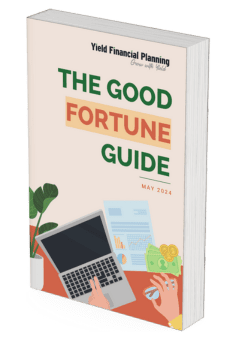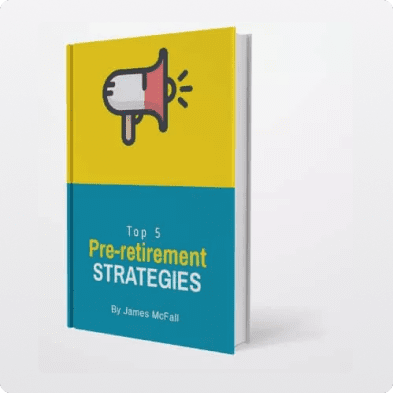This article forms Part 2 of a two-part feature on business exit strategies where we have collaborated with our good friend Nicole over at Studio Clvr to display our passion for exciting local businesses.
Selling your business can be a daunting, emotional, and confusing task at the best of times. After years of dedication and long hours, many owners and founders find it difficult to part ways. However, it may be the right decision to make for a multitude of reasons.
Reports from Forbes, find 42% of small to medium sized business (SME) owners experience burnout at some point along their ownership journey. Thus, a large amount of owners reach a point they would prefer to spend their days travelling, spending quality time with family, etc.
At Yield we’ve seen a lot, supporting our clients in the transition away from their business and selling a business is an extremely complicated task, especially without the right plan. Through implementing a tailored strategy, you can get the most out of your hard work and see the rewards come your way.
Selling your business
Often the first step is the most arduous, being tasked with asking yourself why you would like to sell your business. Are you part of the 42% experiencing burnout? have you received offers for your business? you may even be looking for a career change. In any case, determining why you want to sell is an essential step to kick off the process.
There is a key difference between selling your business for the sake of selling it and selling your business because you are able to gain the most value out of it. Essentially, it is a question of can you sell your business while still receiving the necessary level of appraisal.
To maximise the value, you receive from selling your business and to avoid taking the wrong deal, you will need to establish how your business is valued in the market and what it is worth today. Valuing a business can be one of the most difficult tasks in finance, as numerous years of experience and education are needed to do so accurately. If you are looking to do it yourself, self-evaluating bias can creep in and potentially harm your progress, however it still pays to have some understanding on how other businesses like yours are sold in your market and values achieved. The advisable method to value a business is to seek professional expertise from either a business valuation company or business consultant that specialises in valuation.
The benefits received from selling your business can be varied, including it being the best financial decision. Forming your personal financial needs post sale of your business is a key process, depending if you see yourself retiring or continuing other work. At Yield we provide the connection between your business plan and your personal financial goals and when you are selling your business, we are able to help you set up a plan, execute, and adapt, no matter which road you want to go down.
Another key process of selling your business is setting a future date and goal of when you would like to be out of the game. Through setting a future date of when you would like your business to be sold you are able to utilise your time and create the most value possible for your business
Identifying opportunities to enhance value by improving Profitability and Revenue growth

The best businesses to buy are those that are profitable, growing, and not reliant on their owner, and the best way to assist with this is to have a strong process. By boosting the overall processes in your business, you can take its value to a whole new level. Once operations are more efficient and effective, the results will follow, turning your business into a more profitable enterprise. Improved process can also lead to an increase in sales because you will be creating value in your business and able to manage an increase in demand.
Technology supports strong process and with an ever-increasing use and advancement in technology it provides a new lens to view your business through. Often the investment in technology can improve profitability by making processes more efficient, however the important thing to realise is that technology alone will not solve your issues. When technology is implemented as part of a cohesive thought through plan, it can exponentially repay the time put into setting it up. Automation is a major benefit when it comes to getting return on capital, especially when upgrading efficiency and effectiveness. The design of your website can also provide substantial benefits in terms of consumer interactivity and the development of technology has made this easier than ever before.
Identifying short term opportunities to stimulate growth are essential to adding last minute value to your business. If potential buyers view your business as one that is growing and on the up, they will be more justified to offer you a lucrative deal. In addition to potentially receiving a higher value offer, you as an owner will have more options on your table if you continue to work. Yield can help you plan and manage your finances dependent on the choices you make after you do sell your business and indeed while you are planning and considering your options for sale.
Consider internal succession options to sell a business privately

Selling a business privately through internal succession can be a tremendous exit strategy. This way you know your business will not be impeded by new operations and management and may leave the door open to retaining a smaller holding if you would like to. It can also enhance value, because the employees have a more intermittent understanding of the value in the business.
You can start doing this now if you haven’t thought about it already, identifying an employee or employees you have a good relationship with, and think are suitable to mentor and slowly progress a transition to fulfilling more roles while you commence the process of stepping down. In doing this and selling your business privately you can do more to ensure the relationships you have built up with clients will remain strong and unimpeded, as the employee/s you decide to take over your role should already have a strong relationship with clients and an understanding of the nuance, to help decision making for the business.
You will likely need several years lead time for this to be successful and it will require a viable plan for the employee/s to finance the buyout agreement. There are several ways to approach a private internal buyout, which can include a more passive shareholding structure or hands on directorship.
Maximise your after-tax valuation by getting your structuring right

The biggest cost you may have in the sale of a business is the tax payable on the gain and it is therefore vitally important that you have a well thought through tax strategy well before you sell. Financial Planners consider tax in the context of the strategy and should work with your Accountant collaboratively to maximise your end outcomes.
As a business owner, you most likely have several tax structures set up already. Companies, Trusts, and personally held assets all have their own tax treatment and understanding how you can leverage what you have and then any opportunities for enhancement could make hundreds if not millions of dollars difference to the net outcome of your business sale.
In Australia several business owners will be entitled to small business tax exemptions, and it is wise to understand how they may be applicable to you as part of your plan. Some financial planners and accountants can help you determine whether you are eligible for small business tax exemptions. Once you have figured out your eligibility for the small business tax exemption it is possible that your business sale will be tax free.
What you can do right now is start getting your existing business structures to work into your personal financial planning needs. Whether you are considering selling your business right now or not, it makes sense to understand and leverage the available tax structures including superannuation (possibly SMSF) where tax concessions are high. Similarly, a bucket company structure may be a great idea. A bucket company is a structure that businesses can use to maximise profits by structuring business and personal assets in a tax effective and strategic manner. A bucket company sits under your business or trust to receive some of your profits, thus saving you money on tax and for your business. A bucket company is also what individuals use to pay shareholders dividends in a secure and timely way that protects the wealth accumulated through the businesses hard work. Before selling your business, it is worth considering this structure to ensure you are getting the most value back into your hands.
Selling your business and establishing exit strategies will require planning and thought, but hopefully we’ve shown you that by being diligent about it, you can exponentially improve your end outcome, while simultaneously taking some control back over the outcome also.
Access the first half of the blog right here on Yield, as well as at our friends’ over at StudioClvr.


















